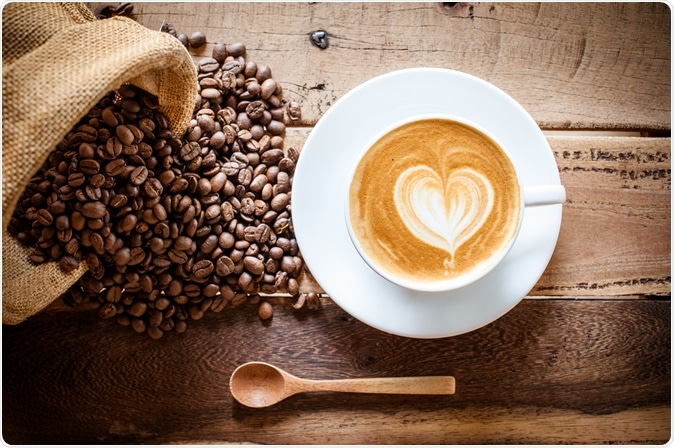The morning coffee or tea can perk one up for the day, however, for some of us these beverages are too bitter. Researchers have now found that the bitter taste experienced is all down to genes.
The new study titled, “Understanding the role of bitter taste perception in coffee, tea and alcohol consumption through Mendelian randomization,” was published in the latest issue of the journal Nature Scientific Reports.

Image Credit: I love coffee / Shutterstock
There were two approaches to this study. The first part of the study was a large twin study with around 1,800 participants. People of European descent were asked to rate the bitterness of caffeine found in coffee. They used a technique of “Mendelian Randomization” to detect the genetic variants. They noted that a specific genetic variant made a person perceive more bitterness in the coffee than others. There was a specific genetic variant that led to excess perception of bitterness in quinine and yet another for a drug known as propylthiouracil. They termed the variants “rs1726866 for propylthiouracil, rs10772420 for quinine and rs2597979 for caffeine.”
The second part of the study involved data from the UK Biobank that involved 438,870 participants aged between 37 and 73 years. They found that those who found caffeine bitterer due to their genetic make-up were also more likely to be taking in more coffee. On the other hand those who found quinine or propylthiouracil bitterer were found to prefer tea because they had a reduced amount of tea drinking. Their genetic makeup was “rs1726866 in the chromosome 7 bitter taste receptor-coding gene TAS2R38 and rs10772420 in the chromosome 12 bitter taste receptor gene cluster respectively”.
Dr Marilyn Cornelis, Ph.D. of Northwestern University Feinberg School of Medicine, one of the study researchers explained that these genetic variants thus show why some people prefer coffee and others prefer tea. “Given humans generally avoid bitter tastes, we interpret these findings as possibly a learned behaviour: if we can perceive caffeine well we associate this with the psychostimulant properties of caffeine and so seek more coffee,” she said.
The team also noted that people who found propylthiouracil excessively bitter due to their genetic make-up were also less likely to excessively drink alcohol. There were no gender differences in coffee or tea preferences they noted.
Jue Sheng Ong, first author of the research from QIMR Berghofer Medical Research Institute in Australia and a graduate student in co-author Nicholas Martin's genetic epidemiology lab, said that tea contained less bitter substances and thus may be preferred more. Ong said, “Our taste genes partially play a role in how much coffee, tea or alcohol we drink... The preference towards tea can be seen as a consequence of abstaining from coffee, because our genes might have made coffee a little too bitter for our palates to handle.”
The authors write in their concluding statement, “findings demonstrate that differences in bitter taste perception are causally associated with specific bitter beverage consumption behaviour.” They add, “Given the popularity of these bitter beverages at a population level their consumption could have significant impact on health outcomes, but this requires further investigation.”
Source: https://www.nature.com/articles/s41598-018-34713-z